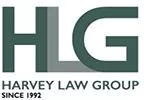- within Immigration topic(s)
- in European Union
- in European Union
- with readers working within the Business & Consumer Services industries
- within Family and Matrimonial topic(s)
The Canada Start-up Visa (SUV) program was established to attract innovative entrepreneurs, offering them a fast and direct pathway to permanent residency (PR). However, in recent years, the program has faced significant processing challenges due to a surge in applications submitted and reduced processing capacity resulting from the COVID-19 pandemic. This article delves into the current processing backlog situation, its implications for applicants, the strategies being implemented by the Canadian immigration authority, Immigration, Refugees and Citizenship Canada (IRCC), to address these delays, and practical steps that applicants can take to effectively navigate these challenges.
Overview of the Start-up Visa Program and the Current State of Affairs Concerning Processing Backlog
The SUV program is designed to facilitate the entry of foreign entrepreneurs who have the potential to establish innovative businesses in Canada. To qualify, applicants must secure the support of a designated organization, which can include venture capital funds, angel investor groups, or business incubators.
In recent years, the SUV program has gained significant popularity, leading to a substantial increase in the number of applications received. This surge in interest can be attributed to several key factors. Notably, the program does not impose upper age limits, personal net worth requirements, or educational prerequisites for the main applicant, making it accessible to a diverse range of entrepreneurs. Additionally, the ability for applicants to secure work permits to begin working on their startup ventures in as little as three months adds to the program's appeal, allowing them to start their entrepreneurial journey in Canada swiftly. Furthermore, the program supports family unity by offering open work permits and study permits for dependent family members, enabling them to accompany the main applicant to Canada while they await the finalization of their permanent residency. This combination of inclusive criteria and supportive policies has positioned the SUV program as an attractive option for aspiring entrepreneurs worldwide.
As demand for the program grows, IRCC has struggled to process applications promptly. The influx of applicants along with the reduced processing capacity during COVID-19 pandemic has overwhelmed existing resources, resulting in delays and longer processing times.
As of October 31, 2024, there are 11,508 SUV applications in process at IRCC. While the IRCC has implemented new measures to reduce the backlog and has gradually increased its processing capacity following the COVID-19 pandemic—successfully admitting over 5,000 individuals under the SUV program in 2024—entrepreneurs applying under this program may still face longer wait times for their permanent residence applications in the next two years. SUV applicants are encouraged to remain patient and consult with their immigration representatives to develop effective strategies for advancing their applications.
Impact of the Processing Backlog
Historically, SUV applications were processed efficiently, with file numbers issued within a month of filing and a decision on the permanent residence application typically available within 12 to 16 months. This timeframe allowed applicants to plan their entrepreneurial ventures with a reasonable expectation of timely approval. However, the situation has dramatically changed; the average processing time has now escalated to approximately 40 months.
This significant increase in wait times has profound implications for applicants. Some applicants experience substantial stress due to prolonged uncertainty regarding their immigration status, which can hinder their ability to make critical business decisions. The uncertainty surrounding their immigration status can complicate efforts to secure investments and funding for their startups, as potential investors may hesitate to commit resources without clarity on the entrepreneur's residency status.
IRCC's Strategy to Address the Backlog
In response to the growing backlog of SUV applications, IRCC has implemented several strategic changes aimed at improving processing efficiency and providing better support for entrepreneurs.
- Application Cap
Since April 30, 2024, the IRCC has introduced a cap on the number of start-ups that each designated entity can support each year. This measure is designed to streamline the application process by encouraging designated organizations—such as venture capital funds, angel investor groups, and business incubators—to concentrate their efforts on the most promising startup proposals. This targeted approach not only limits the influx of SUV applications, directly addressing the processing backlog, but also enhances the overall quality of applications submitted to the IRCC. By focusing on high-potential ventures, designated entities can provide better support and mentorship, ultimately contributing to the success of the start-ups and fostering a more vibrant entrepreneurial ecosystem in Canada. This cap is temporary and will remain in place until December 31, 2026.
- Introduction of Work Permit Options
Recognizing the challenges posed by extended processing times, the IRCC has also revised its work permit policy to provide greater flexibility and stability for applicants. As of October 3, 2024, individuals awaiting permanent residency through the SUV program are now eligible for a three-year open work permit, a significant improvement over the previous one-year closed work permit. This change eliminates the need for annual renewals while the permanent residence application is being processed.
- Abolishment of Peer Review Process
As of August 1, 2024, IRCC has paused all peer review processes, meaning that IRCC now solely determines the validity of commitments from designated entities. SUV applicants no longer need to wait for assessments by the National Angel Capital Organization for processing of their permanent residence applications. This change reduces reliance on third parties to assess applications, which often created bottlenecks due to the limited availability of reviewers, and acts as a measure to reduce processing delays and streamline the application process.
- Prioritization of Selected Cases
SUV applications that are backed by at least CAD 75,000 in Canadian capital or by a business incubator that is a member of Canada's Tech Network will receive priority processing. Additionally, IRCC may prioritize francophone applicants and those already in Canada seeking to transition to permanent residence.
Steps Applicants Can Take to Navigate the Challenges
While IRCC has made significant strides to reduce the backlog and improve the processing speed for SUV applications, some applicants may still encounter substantial delays. If you find yourself in this situation, there are several proactive measures you can take to potentially expedite your application and move it out of limbo.
- Relocate To Canada: If you are an essential
member of your start-up venture, consider applying for a work
permit and relocating to Canada. Being in Canada while actively
developing your business can help get your application prioritized
for review, as IRCC tends to favor applications from individuals
who are already in Canada and contributing to the local economy.
Relocating allows you to start your new life in Canada immediately,
even before your permanent residency is granted. This presence not
only demonstrates your commitment to your start-up but also
provides the opportunity to build valuable networks, gain critical
insights, and develop business strategies to better meet local
market demands.
Furthermore, your family can apply for permits to join you in Canada, enabling them to work and study in Canada as needed while benefiting from the country's exceptional education and healthcare systems. This approach not only expedites the processing of your application but also strengthens your candidacy for the SUV program, as it highlights both your dedication to making a positive impact in Canada's entrepreneurial ecosystem and your commitment to establishing yourself and your family in Canada. - Document Your Progress: If your application has been waiting for a file number for an extended period, consider submitting documentation by webform to showcase your business development progress, including any milestones achieved, ongoing projects, and future plans. By showcasing your commitment and readiness to contribute to the Canadian economy, you enhance the likelihood of your application being prioritized. The IRCC tends to favor applications that illustrate active engagement and investment in business activities, as this reflects positively on the economic landscape. Providing this information can not only highlight your dedication but also signal the potential benefits your business could bring to Canada, thereby supporting a case for expedited review.
- Highlight Prejudice: If the processing delay has caused you significant hardship—such as financial strain or missed business opportunities—compile evidence to support your claim. This could include letters from clients, contracts that are now on hold, or any other documentation that illustrates the negative impact of the delay. Presenting this information to IRCC may prompt them to prioritize your application.
- Legal Remedies: If the above-mentioned measures do not result in a resolution, applicants may consider pursuing a judicial review application to request for a writ of mandamus. This legal remedy compels IRCC to make a decision on your delayed application within a reasonable timeframe. It's important to note that not all applications qualify for initiation of a mandamus application. Therefore, consulting with an immigration lawyer is crucial to understand the implications, eligibility criteria, and the steps involved in filing such an application. An experienced lawyer can provide guidance on how to effectively present your case and increase the likelihood of a favorable outcome. Taking this step can be a powerful way to address significant delays and ensure that your application receives the attention it deserves.
The Promise of the Start-Up Visa Program Despite Backlog Issues
Despite the challenges posed by the current backlog, the SUV program remains one of the most promising and innovative options for aspiring entrepreneurs. What sets this program apart from others is its flexibility; it does not impose strict requirements such as specific revenue thresholds or mandates for hiring a certain number of local residents to qualify. Furthermore, it does not enforce a minimum investment threshold or impose restrictions on the types of business ideas that can be pursued. This openness fosters an inclusive environment, allowing a diverse range of entrepreneurs to explore their potential and bring their unique visions to life within Canada's dynamic economy.
Although the backlog may result in longer processing times for applications, recent measures implemented by IRCC are designed to alleviate these delays. With ongoing efforts to streamline processes and enhance efficiency, we expect the SUV program to regain its momentum and return to more typical processing times by the end of 2026.
If you are an SUV applicant currently experiencing delays and require guidance on how to navigate these challenges, please feel free to reach out to us at contact@harveylawcorporarion.com. We can assess your situation and provide a legal opinion to identify the most effective pathway forward for your application.
Founded in 1992, Harvey Law Group is a leading multinational law firm with offices across Asia, North and South America, Europe, and Africa to cater to your specific needs for immigration and beyond.
The content of this article is intended to provide a general guide to the subject matter. Specialist advice should be sought about your specific circumstances.


